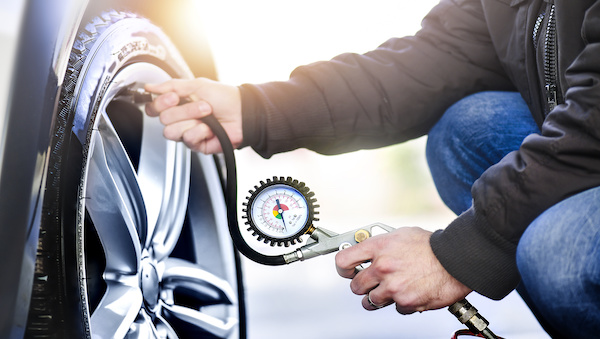
According to the National Automotive Parts Association (NAPA), the average car, truck, and SUV have an estimated 30,000 parts that work collectively to help get us from point A to point B. Along with an array of nuts and bolts and, of course, the engine and transmission, those 30,000 parts include tires. While it might not always be top of mind, checking your tire pressure every so often is very important.
Why Properly Inflated Tires Matter
According to many tire manufacturers and tire technicians, having the proper tire pressure extends the life of your tires. For reference, consumers spend between $460 and $1,280 when they purchase a set of new tires for their vehicle, according to the financial services company NerdWallet. In addition to allowing you to put off buying expensive new tires for a little longer, having properly inflated tires can contribute to vehicle safety. Multiple studies show low tire pressure negatively affects braking, steering, and overall handling. In other words, it makes driving unnecessarily dangerous and increases the probability of being involved in an accident.
How to Check Your Tire Pressure
Checking the air pressure in your tires is very easy. All you need is a tire pressure gauge, which you can buy from an auto parts store or use for free at most gas stations. That said, the three steps involved in checking the air in your tires are as follows:
- Remove the air tire valve cap, and set it aside.
- Firmly push the tire gauge against the valve stem, which is now visible since you removed the tire valve cap, and hold it there for one or two seconds.
- Look at the reading on the air tire gauge. If it aligns with what the manufacturer recommends on the tire information label, which you can find on the inside of the driver's door jamb, your tire pressure is okay. If it is too low, you will need to add more air.
In summary, having properly inflated tires can improve handling, fuel efficiency, and vehicle safety. And the cost of checking and filling them with air if needed is next to nothing or, in some cases, completely free. So if it has been a while since you checked your tire pressure, consider doing so today.